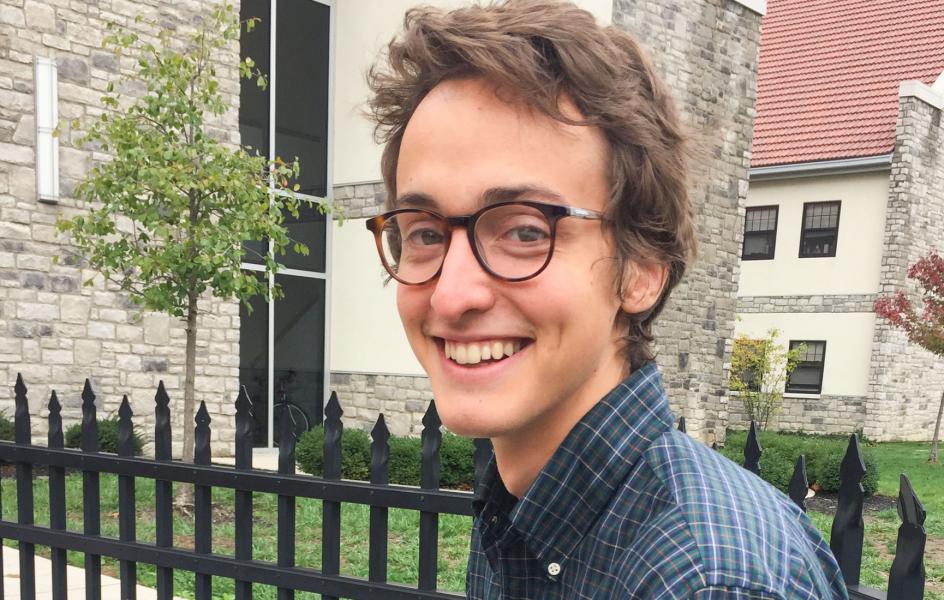
Colin Higgins
Political Science and International Studies major
Traveled to: Stellenbosch, South Africa for 11.5 months
Interest in: Studying cyclical poverty and systemic injustices
Why South Africa? It was a good way to get out there and stretch the mind and stretch the experiences
It was tough. It was really weird coming back. When you go into these things, you don’t think to yourself, “Oh, culture shock or reverse culture shock aren't going to hit me.” You start this journey by thinking you know that you’re fine. I’ve moved around, I’ve traveled. I’ve done things, been places, met people and had new experiences. Then, it actually happens. It hits you like a brick wall. I mean, culture shock going there was tough. I called my mom a lot. Then you get used to it a bit. I remember going there and I got really tired of my heart hurting all the time because of what I was seeing and where I was. It was really easy to be angry about where I was.
So I spent a year there. You go through this roller coaster of culture shock and adjustment. I got used to being in this place, being around these things and you almost do less and learn more just because you are surrounded by these experiences. So much is going on and you’ve had protests happen right in front of your eyes. These protests are still continuing. Rubber bullets are being used on students, tear gas is being used on students ... you have fires being started and cars and tires being set on fire. It was a beautiful insight into a government responding to the voice of the people that I’ve never seen before.
So I get back, you know, you go and you have these amazing experiences, and then you come back after having lived in a place with so much going on and being in such a state of constant change, to here, where things are relatively placid and comfortable. There is a culture of apathy and a culture of ignorance where intelligence is intimidating, tough conversations are hard so they are avoided and it’s easier to just play video games on a Friday. So people do those things and I am just floundered for a bit.
Now, there are a lot of things that are privileges that we treat like rights. We treat a house and food like a right. If you want to look at our position relative to the rest of the world, it’s a privilege. People treat education like a right, when in reality it is a privilege, and it is a right but we don’t appreciate it quite as much. In so many senses, things like a house and food and education and being here at this university are privileges. Huge ones. Every person here defies the statistics. Every one of us is privileged to come here to Heidelberg and to study and learn and to broaden our experiences.
I struggled with a lack of privilege appreciation in a sense. But, the cool thing is that I came back with this perspective. That lens, that different way of looking at things, and I can apply that to my time here. Since Heidelberg is such a small, personal school, I am able to move forward from how I was feeling with the help of people like Dr. O’Reilly, who is helping me continue my research done in South Africa. I can use the perspective I’ve gained to start conversations I wish were started and to talk about things I wish were talked about. So coming back, I can bring up the things I want to talk about with people. I can share my new-found perspective.
